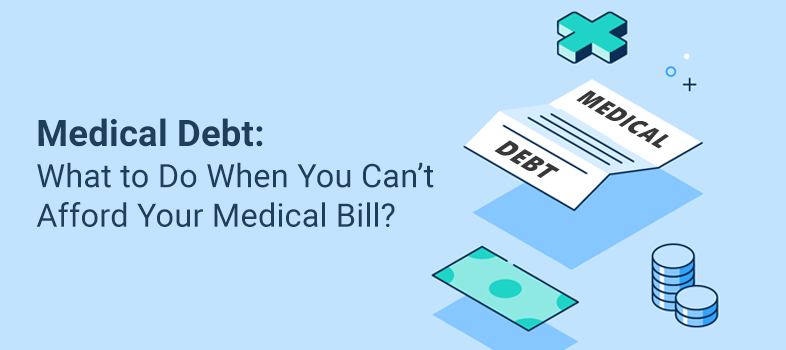If you or a member of your family has had a medical emergency or long-term medical situation, you may be dealing with the difficult one-two punch of physical recovery as well as significant medical bills.
While unpaid medical bills can harm your credit and cause legal problems if they go unpaid, there is often some leeway in repayment. In addition, unlike most credit card and loan debt, medical debt rarely carries any interest or penalty charges. If you have a large medical bill, follow the steps below to help reduce the cost and create a repayment plan that works for you.
- Compare Costs
The Internet is a fantastic equaliser. You’d be shocked how much material is available online concerning healthcare expenses if you did a little research on Google. Before heading to the lab, always find out how much a certain blood test or scan test will cost. Get their phone number from Google or their website, call their receptionist, and inquire about their charges. Being proactive, researching and comparing pricing amongst hospitals and diagnostic facilities might help you save a lot of money.
- Cross-check Errors
It is normal for medical invoices to have a few inaccuracies, which might lead to a greater bill amount. Check for any duplicate charges for the same services and facilities that you cannot recall and are perplexed about. If you have health insurance, search for any expenditures that should have been reimbursed by your insurer. Check the statement carefully and compare it to your prior medical invoices to identify any price errors. Check with the hospital’s billing department to see if your insurer has reimbursed the charges that were incurred in accordance with your insurance policy. You should also clear up any confusion about the bill’s amount. If you discover an error in the bill and settle it with the hospital and your insurance, the due amount will be reduced, effectively lowering your medical debt.
- Negotiate the Bill
Negotiating with the hospital’s billing department is another efficient strategy to reduce your medical expense. If you are eligible, they have the power to reduce your bill. However, make sure to start the negotiation before settling the bill, since it gets more difficult to bargain afterwards. Hospitals will sometimes reduce the medical charge for low-income households. You must inform them of your incapacity to pay the complete sum. You can even persuade them that if you pay the whole amount, your family would be in terrible financial difficulty. The hospital could think about lowering some of its fees.
- Figure Out a Payment Plan
Many medical providers, including doctors, dentists, and hospitals, can work with you to arrange a payment plan for your costs. This is one of the easiest and most typical methods of resolving a problem that you cannot afford in a single payment. The minimal amount you may pay on your payment plan is determined on the amount of your bill and the parameters you negotiate. Generally, you divide the bill into many equal instalments over a few months until the amount is paid.
Tip: Inquire about any billing costs or other expenses related with the payment plan so you can determine its affordability.
- Take a Personal Loan
Another efficient option to seek medical debt relief is to take up a low-interest personal loan. A personal loan is easy to get, and the funds may be used to cover any financial obligations, including medical bills. If you find yourself in the hospital suddenly, the costs will undoubtedly devastate your budget. With a personal loan, you may pay off your full debt at once. Many different financial companies with competitive interest rates might provide you with reasonable loans. This manner, you will be able to return the loan over time without jeopardising your financial situation.
But make sure you’ve exhausted all the other options before taking a personal loan to pay off your medical bills because, usually payment plans are generally low pr interest-free meanwhile personal loans are not. So, you will end up paying the bill amount along with accruing interest over it.
- Check If You’re Eligible for an Assistance Program
Once you’ve determined your precise financial commitment, contact your medical providers to see if any aid is available. Many hospitals provide assistance programmes that might help you minimise your medical expenditures. Unfortunately, you must typically inquire yourself to find out if you are qualified. You should also inquire about payment choices; you may be able to arrange a long-term payment plan that is more suitable for your budget.
In Conclusion
No being able to pay off your medical bills & accumulating a medical debt is not a personal failure or something you need to be ashamed of. It is more common than you think and can be regulated easily if you’re paying attention. This problem doesn’t just affect the low-income households or un-insured consumers but even people with regular incomes and insurance can face it too. Hence, no matter your annual income, anyone of us can be afflicted with illness, accidents, and unfair health economics, which are generally out of our control. So, stay vigilant and always keep the above mentioned points in mind while you pay your medical bills.

